Download free, customizable Patient Confidentiality Agreement templates to protect sensitive medical information and stay HIPAA-compliant.
Protecting patient privacy is more important than ever. If you work in healthcare—whether as a doctor, nurse, researcher, or in administration—you know there are times when sensitive information has to be shared. It might be for research, working with technology partners, or simply running day-to-day operations.
That’s where patient confidentiality agreements come in. They make sure everyone involved understands their responsibility to keep patient data safe. To make things easier, we’ve put together a set of free, ready-to-use templates you can download and adapt for your needs.
Secure your business and clients with our free, expert-approved Patient Confidentiality Agreement templates in MS Word format. Click below to get started:
Our legally sound templates ensure compliance with the latest regulations, helping you maintain data security and peace of mind.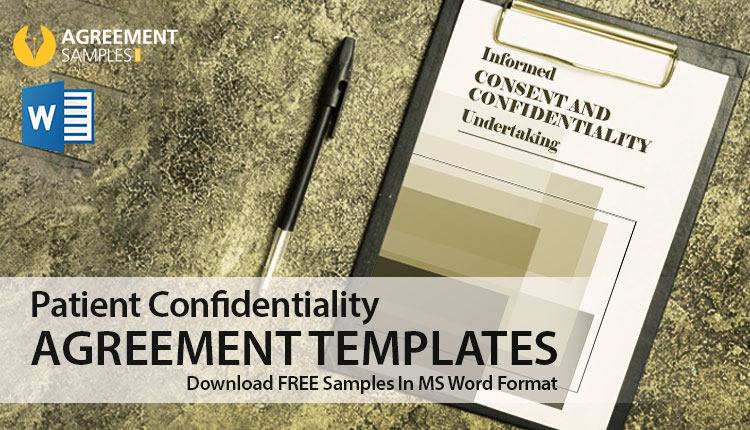
A Patient Confidentiality Agreement is a simple contract that makes sure private medical information stays protected. It’s an agreement between patients and those who handle their data—like doctors, nurses, researchers, or even outside partners—promising that sensitive details won’t be shared without permission.
These agreements help healthcare providers follow privacy laws (like HIPAA in the U.S.), prevent data leaks, and build trust with patients. You’ll often see them used in hospitals, clinics, research studies, and anywhere patient information needs to stay secure.



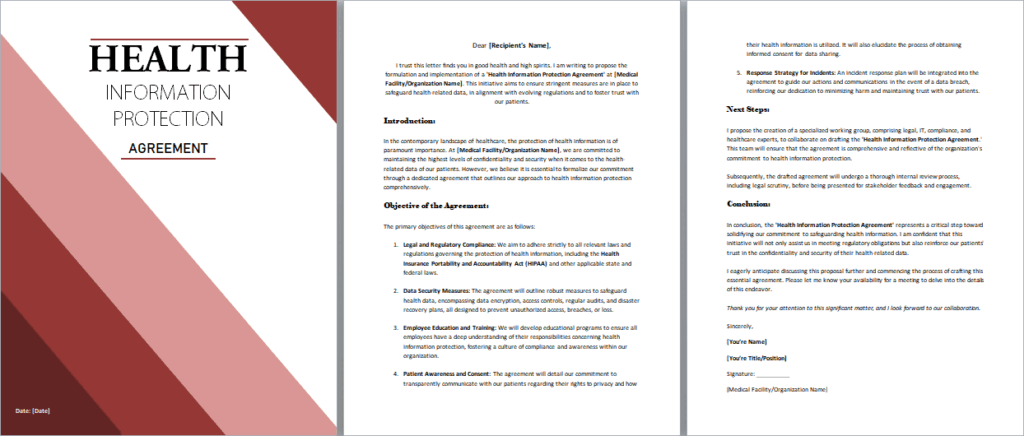

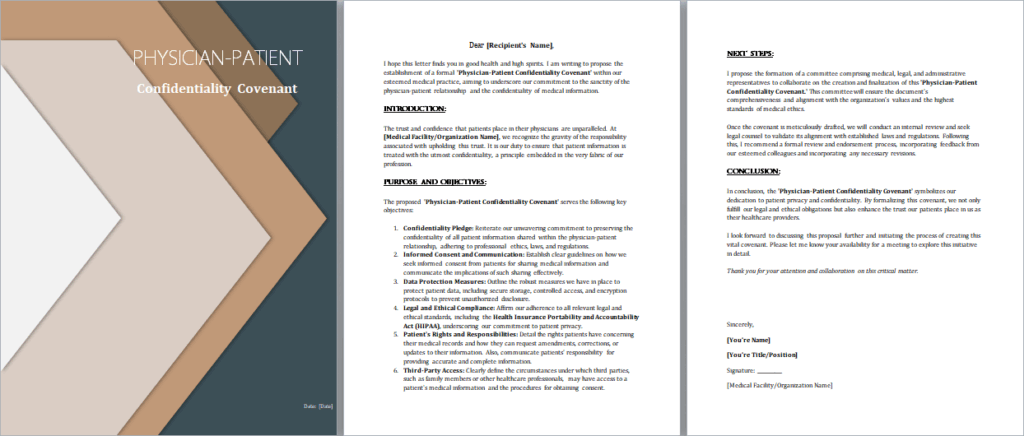

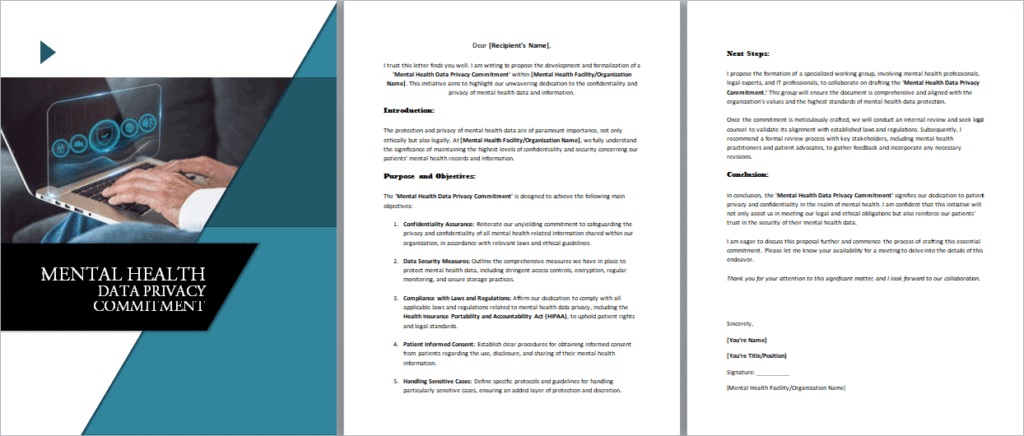

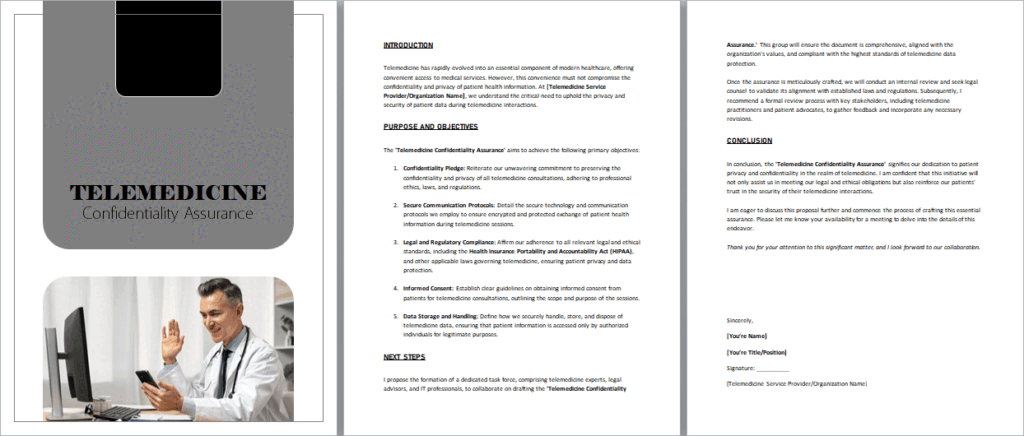



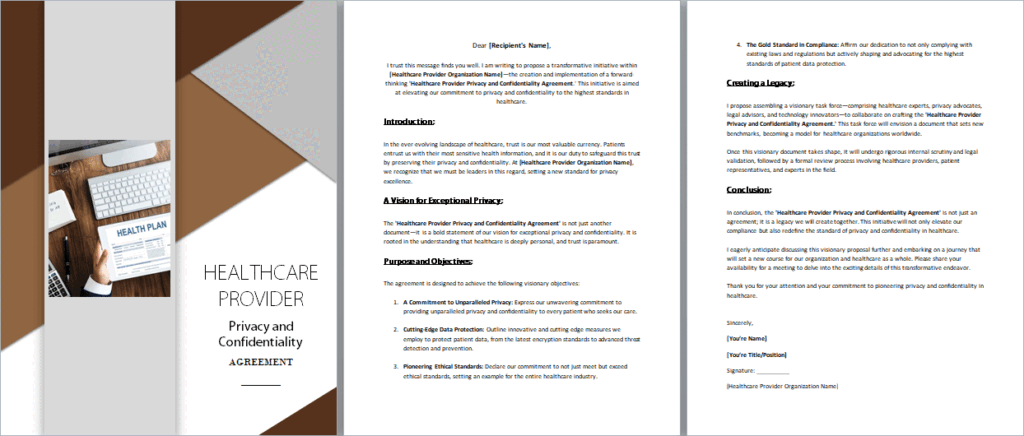
Protecting patient information isn’t just good practice—it’s the law. In the U.S., HIPAA sets strict rules on how medical data can be used and shared, and similar privacy laws exist worldwide.
A Patient Confidentiality Agreement helps healthcare providers and partners stay compliant by spelling out who can access patient information and how it should be handled. This not only prevents legal issues but also reassures patients that their personal details are safe.

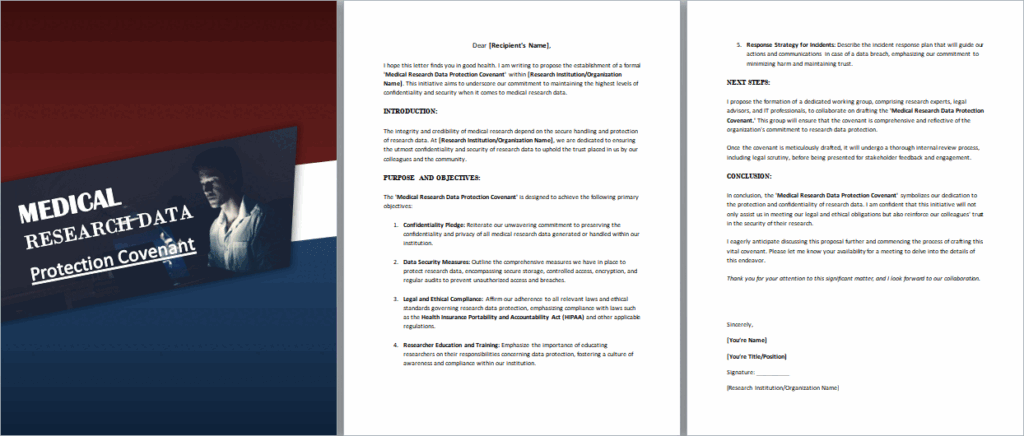

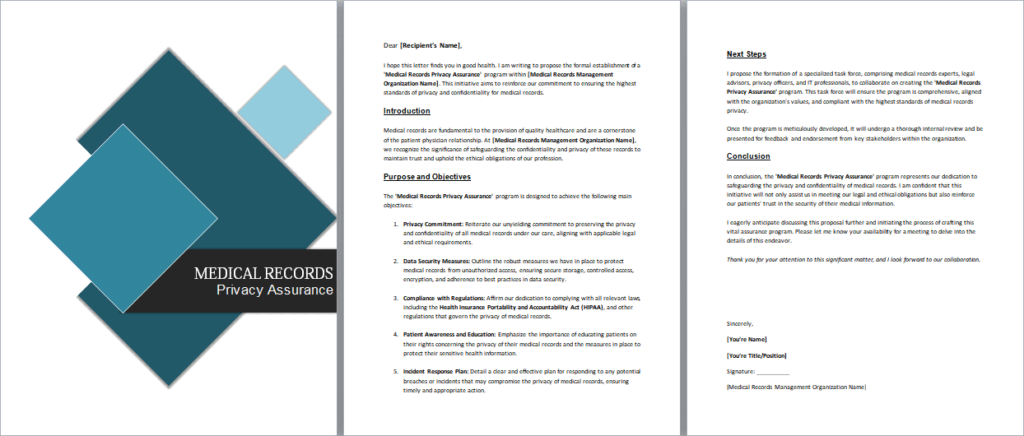

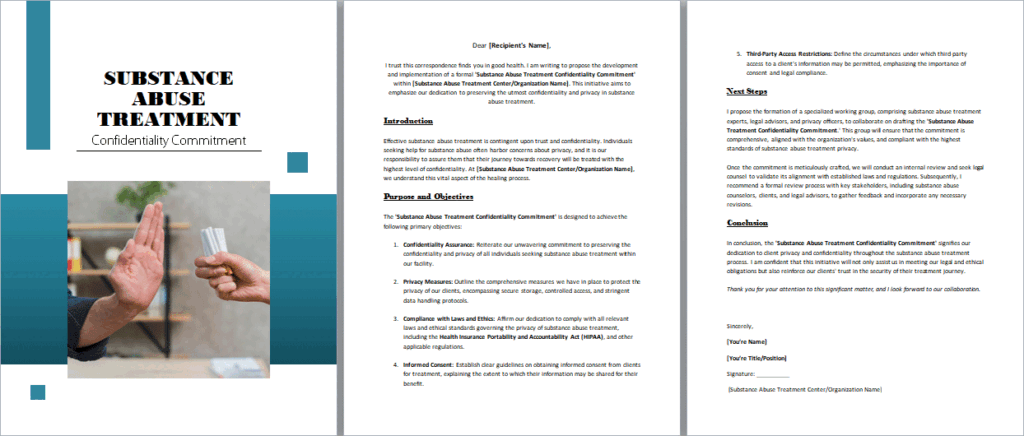



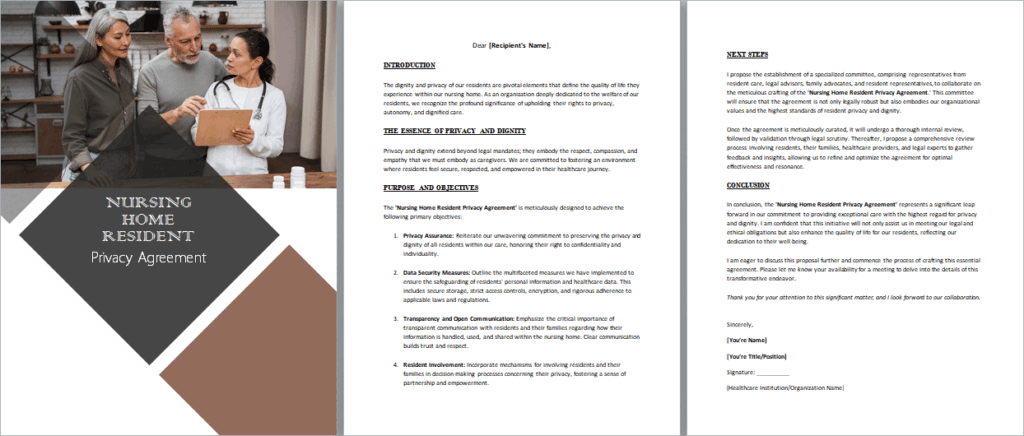





Confidentiality agreements protect your health info and ensure privacy.
Why They Matter:
Key Points:
Action Steps:
Know Your Rights: Access and correct your records.

Confidentiality agreements are useful anytime patient information is shared beyond the individual receiving care. In healthcare, this can happen in many situations, such as:
In short, you need a confidentiality agreement whenever sensitive medical details might be seen, used, or transferred by someone other than the patient. It protects the organization legally and ensures patients feel their privacy is respected.

A Patient Confidentiality Agreement is a legal document that ensures private medical information is kept secure and only shared with authorized individuals.
Doctors, nurses, medical staff, researchers, students, and even third-party service providers who have access to patient information should sign one.
Yes. Patient Confidentiality Agreements are designed to support HIPAA requirements in the U.S. and similar privacy laws in other countries.
You should use one whenever sensitive patient information is shared—such as in hospitals, research studies, telemedicine, or with outside vendors.
Absolutely. The templates are fully editable in Word, so you can adapt them to fit your healthcare setting and compliance needs.
← Previous Article
13+ Free Short-Term Rental Agreement Forms for Your NeedsNext Article →
10+ Free Marketing Agreements – Download Templates Now